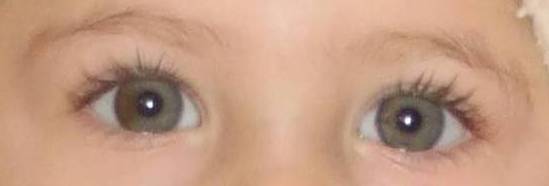
Have you ever been stared at, pointed at, made to feel uncomfortable out in public? My last interviewee, Candida Sullivan, said such a beautiful line about dealing with this discomfort: “Stares and whispers no longer have any control over me. All a stranger might see are my scars, but it is up to me to show them my heart.”
I too had my share of staring and pointing experiences with my daughter Nava. As a child who stuttered (and still does as an adult) Nava always talked for herself when out in public. She was outgoing and loved talking to people. When we went to a restaurant or take-out eatery she ordered for herself. And people on line or near enough to hear would whisper and stare. It naturally bothered me but never to the point where I would speak for her as some people had suggested I do in order to avoid the ‘embarrassment’.
As her parent I was clear in my goals for raising her – encourage her independence and help her feel good about herself. Talking for her would sabotage both of those goals. She has a great personality and the last thing I wanted was for her stuttering to inhibit her in any way. She never hesitated to talk, which was great. I certainly wasn’t going to put my discomfort on her.
She seemed oblivious to the stares and whispers or maybe it just didn’t bother her. But I had to deal with it for myself and her. Of course it hurt me that she got stared at. Just as when she was a baby her crossed eyes and delayed development prompted those uncomfortable gestures by others. At that time going to the park was a painful ordeal for me as my own discomfort took in every look, be it intentional or not.
I had a client years ago whose baby was born without arms. It was summertime and she often took him to the beach. She would not allow those stares (you can imagine the intensity here) to stop her from giving her baby the normal experiences of beach play. She hadn’t even had all that much time to deal with her grief (he was only 18 months at the time) but she pushed through the extreme discomfort for the greater value of normalizing her child and his experiences.
So how can we best learn to deal with the stares, finger-pointing and whispers that external differences unfortunately seem to attract?
Thanks for stopping by. Love to hear your thoughts here. How have you or anyone you know dealt with those uncomfortable stares? What helps push you through the discomfort?
Thanks for this post Harriet. My young nephew Chris has cerebral palsy that affected his legs. I learned so much from him. He couldn’t walk properly and sometimes people would stare, but it didn’t bother him at all. He would just carry on as normal. When he started school a lot of the children wanted to know why his legs were “funny.” Chris told the teacher that he was fed up with answering the same questions over and over, so could he just stand up and tell the whole class about his legs and be done with it! Then he did! Last year he had an operation that worked a miracle and now he walks normally. Still I learned much from his attitude towards his disability and his ability to deal with the reactions of others.
Hi Sharon,
Kudos to your nephew Chris. How courageous to stand up and tell the class openly and honestly what his issue is. That does wonders to diffuse a difficult situation, and educates the class as well. Kids have tremendous ‘bounce-back’ and can be so resourceful; oftentimes more than adults. Their matter-of-fact attitude can be a real blessing.
I learned a lot of that from my daughter too. She’s been my teacher and role model in handling things with positivity and ‘nonchalantness’.
How wonderful that Chris’ surgery was a success!
We need to be able to value the differences between us Harriet, physical or otherwise and kudos to your daughter for helping to teach this.
Hi Elle,
Yes, valuing differences and being tolerant is crucial. It’s an ongoing process. And our best teachers are most often those who have the ‘differences’.